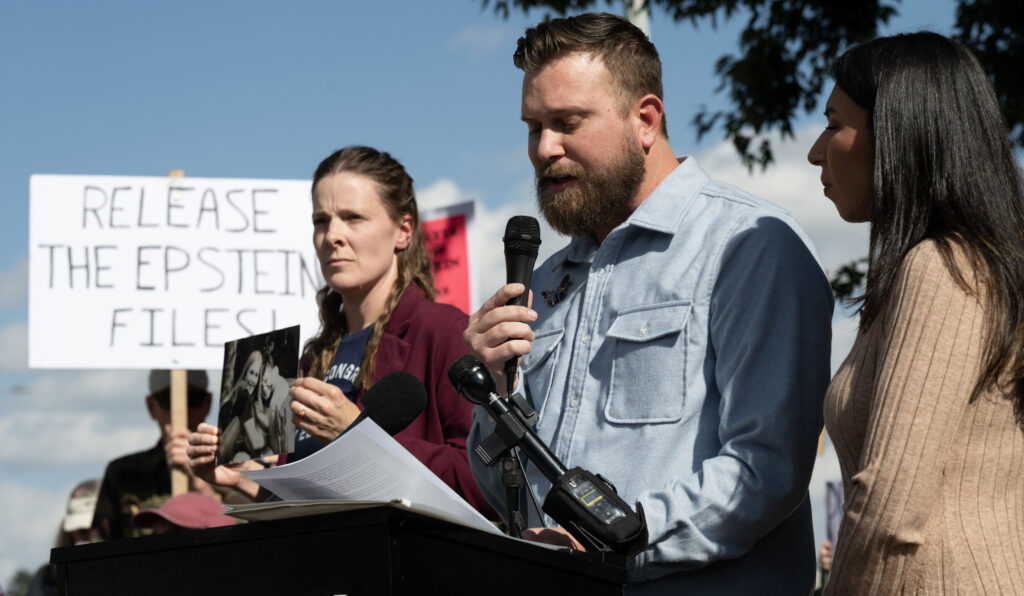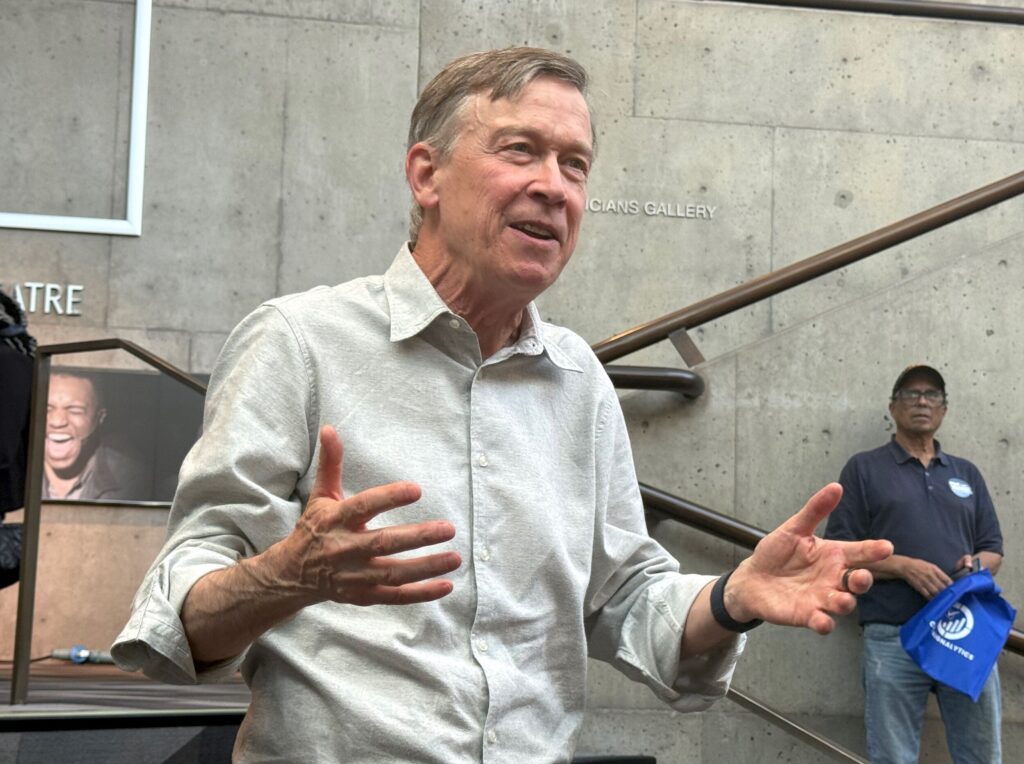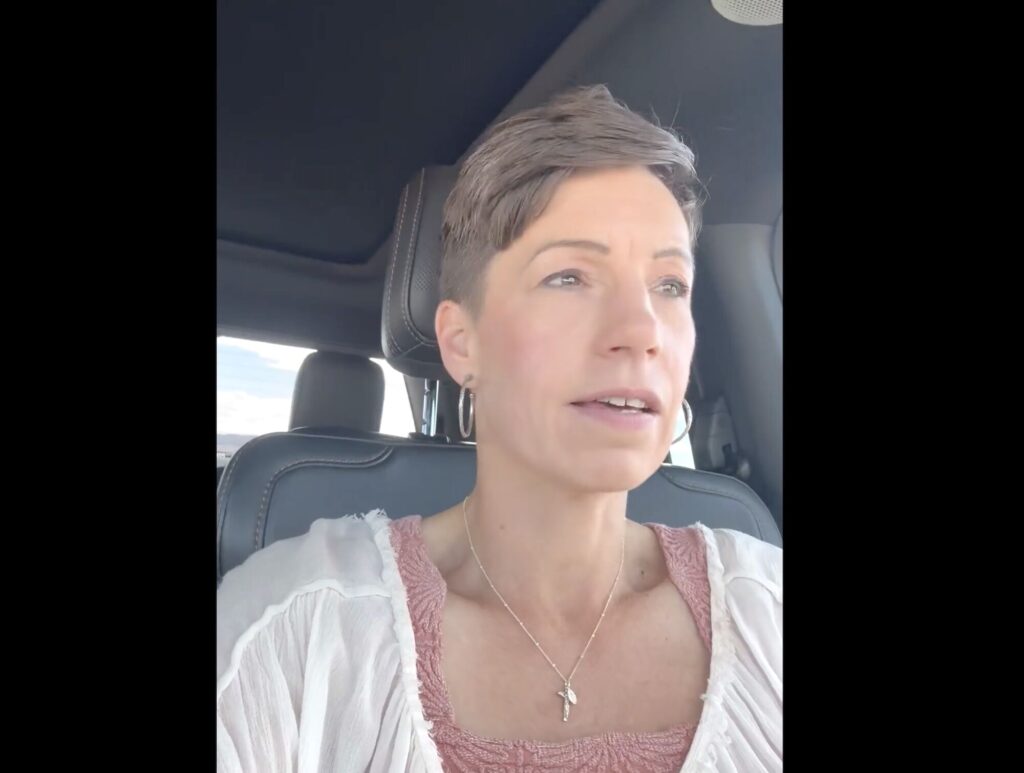Disappointed, but Kent Thiry says his fight continues
Four days after voters in Colorado — and in four other states — rejected ranked choice voting, Kent Thiry said he remains a true believer and he is not giving up his fight.
If anything, the election defeat — and it stung, he acknowledged — is motiving the former DaVita CEO to continue the conversation, he said, adding that the results, to him, confirmed that the system is “broken.”
Proposition 131 turned out to be the first major loss for Thiry and his campaign to elect more moderate or centrist candidates, rather than those on the fringes of the right or left.
Don’t count him out, he said.
Thiry and his war chest — he’s spent more than $12 million — have already made changes to Colorado’s political systems.
In 2016, the former DaVita CEO pushed for the first of several major changes in the electoral process with Proposition 106, which allowed unaffiliated candidates to participate in primary elections. He followed that with 2018’s Amendment Y and Amendment Z, which put drawing of congressional and legislative maps into the hands of an independent commission, taking it away from the legislature, where fights over the issue after the 2000 and 2010 censuses meant courts ended up drawing the maps.
In that same year, he also backed the campaign to raise the requirement for passage of constitutional amendments to 55% of the vote, rather than just a simple majority.
In the 2024 election, in addition to putting Proposition 131 on the ballot, he gave $1.3 million to an independent expenditure committee that backed more moderate candidates for the state legislature.
And of the 13 candidates supported by Let Colorado Vote Action, 10 won their primary races against candidates on the farther end of both parties’ progressive or conservative wings. All 10 were in safe seats for their political parties and will be sworn in when the General Assembly convenes on Jan. 8.
Thiry was the committee’s only funder.
A somewhat wistful Thiry told Colorado Politics on Friday that he “owns” what Proposition 131’s loss.
“I’m fully accountable for that,” he said. But he added he feels “pretty darn good” about the results and about getting 45% of the vote on the first try.
He noted that the measure received the backing of Gov. Jared Polis, U.S. Sen. John Hickenlooper, the mayors of four major cities (Aurora, Fort Collins, Colorado Springs and Denver) and a majority of people under 50 who, he said, are “worried about the democracy of their future.”
Although the measure lost — and that hurt, he said — he believes supporters built a much deeper understanding of some of the alternatives.
He sought to equate ranked-choice voting to major political movements throughout history, such as women’s suffrage, civil rights and marriage equality, that all had major setbacks early on, as well as the Taxpayer’s Bill of Rights, which didn’t pass until its third try on the ballot.
“In a world where voters are appropriately hesitant about changing the system,” he said, getting 45% of Colorado voters to support the proposal is an accomplishment.
“We’ve started an important dialogue,” he said.
Thiry and backers of ranked-choice voting have insisted that democracy is not working well, and that a majority of Coloradans believe that. Critics, who include the two major parties, argued that Proposition 131 is an “overly complicated and overly expensive measure” and it will confuse voters.
On Friday, Thiry insisted that voters won’t support going back to the way things used to be. When he ran the 2016 measure for semi-open primaries, both major parties were opposed, and the same was true in 2018 with the changes to redistricting, he noted.
“If you ever tried to go back to the voters and say ‘we’re taking those away,’ the voters would kill you,” he said.
People with power use it to keep power, he insisted, and his measures attacked the “Holy Grail” of power in Colorado — the Democratic party leadership and the special interests that feed at the trough of the current legislature, he said.
It’s that leadership that defends the status quo, he said.
“Democrats, did you look at what’s happened in the country in the last week? How are you feeling about the status quo election system?” he said.
In the current system, everyone gets pulled to the fringes of the right or left, he said.
In 2024, he believes Democrats were pulled far enough to the left that “they couldn’t even beat Trump and Vance in seven legitimately purple states. And if that doesn’t say we have a party that’s lost its way with respect to the middle of America, I don’t know what does.”
So, where does he go from here?
In the days and weeks to come, his coalition will step back and revisit everything, including whether or not to go forward again with exactly the same proposal, which will require investment in voter education. One alternative is to focus on municipalities, another is to break the components of Proposition 131 into chunks.
He’s been there before. He did not like the 2016 semi-open primary proposal, in which independents are forced to pick a Democratic or Republican ballots.
“I hated doing that, but I was too worried I would lose if I tried to go all the way from a closed primary,” he said.
Instead, he played it safe. He added that American voters are “crying for the right to vote, to vote for the person, not the party.” he said.
He and his allies will re-evaluate what happened Tuesday because, he said, one thing is clear: a majority of Coloradans agree that “our democracy is not working well.” That especially clear when 85% of legislative elections are decided in the primary, not the general election, and in the primary, there’s virtually no competition and no choice, he said.
He played a role in that in 2024, with his Let Colorado Vote independent expenditure committee. He called that success “a micro victory” but not one he intends to repeat, stating that’s not how democracy should work. If a majority of people could vote for anyone as opposed to just one party, he said, he wouldn’t have to put in any money but the outcome would be the same.
He cited the example of Rep. Lauren Boebert’s primary election in Congressional District 4, where she won with just 10% support from the entire voting population of the district. He believes she would have lost in a nonpartisan primary.
“I feel OK about investing in primaries when this tiny minority is having disproportionate impact,” he said. “If we fix the system, then me and a whole bunch of other people go away because the majority of the people will speak.”
Money in politics
Thiry said his proposal wouldn’t fix the issue of money in politics, but he believes there would be less special-interest spending. He argued that, in the current system, the special-interest dollars focus on a very small number of people, and that allows them to buy “decisive influence” in the system.
In an open primary or ranked voting system, a person who’s getting a primary challenge from the left or the right can appeal to the middle and can’t be bought by special interests, he said. He added their data showed their approach reduces both negative campaigning and special interest money.
Thiry also dismissed the claims that he’s doing all this to prepare for a run for elected office, likely for governor. He ran ballot measures in California, where opponents claimed he was running and the same happened in 2016 and 2018 in Colorado.
That’s not where he’s going, he said, adding he he and his wife want to give 80% of their money away to causes that will make a better world.
Those dollars are going to environmental and biodiversity causes, and he said much more of his money is headed that way than goes to “this democracy stuff.” They’re also very focused on equitable education for low-income, high school graduates.
“I can think of no better way for me to give back to the country,” he said.
He said Proposition 131 provoked a conversation about democracy.
“We don’t aspire to a world where everybody’s a centrist,” he said. “We don’t need candidates who live in the middle. What we need is candidates who are willing to meet in the middle when common sense dictates.”
He believes he is “fulfilling my highest and best use as a citizen.” It would be ridiculous for him to propose the changes he’s seeking in order to run for office, he said.
“We look forward to continuing this great dialogue because the current election system in Colorado is not leading to truly representative democracy and it is not at all attracting our young,” he said.
He said the vast majority of young people under 35 have no interest in either party, so the notion that the parties should have the “dominant architectural power in designing our elections,” when there are more independents than Democrats and Republicans combined, he argued, is ridiculous.
Ultimately, he said, he believes his cause will prevail because Colorado voters should get to cast a ballot for whomever they want when they’re paying for the election in the first place. That not what exists today, he said. Secondly, if someone wants to become an elected official in Colorado, that person should earn majority support — meaning that candidates will have to work for support from everyone, not just from those in their own political parties, he also argued.
These are principles that the two current major political parties, and particularly the Democratic party, doesn’t seem to care about, he said.











